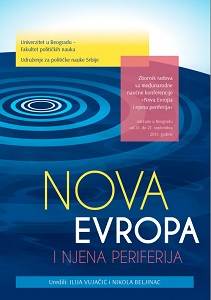

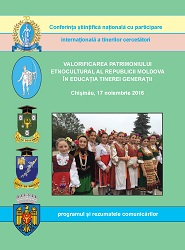
Keywords: Ethno-cultural heritage; historical heritage; research; education; tolerance; democracy
Education tolerance, respect for other cultures and ethnicities is a primordial bridge in building a democratic society. Both in education and in the social environment there are serious gaps in addressing diversity, which is based mainly on stereotypes. This problem occurs including the lack of a scientific and methodological support in addressing teaching and teaching ethno-cultural diversity. EU experience shows that namely through research and the sharing of ethnicities co-existing in Member States and many European nations can be overcome inter-ethnic conflicts and can contribute to the prosperity of communities and states.
More...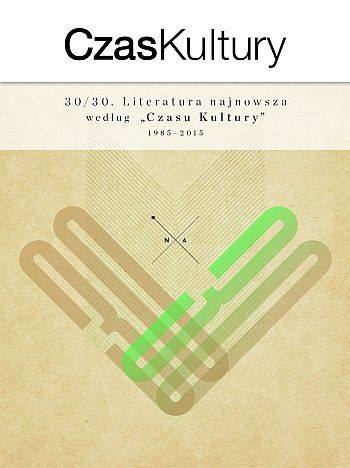
Keywords: polish literature;polish literary studies;polish literary criticism of the 20th century;
Czas kultury globalnej, Marek Wasilewski, Michał Larek; To był najlepszy czas, Piotr Kępiński, Michał Larek; To była świadoma polityka, Rafał Grupiński, Jerzy Borowczyk, Michał Larek;
More...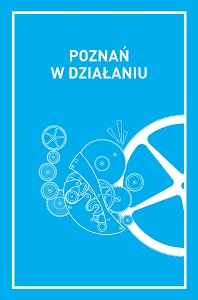
Keywords: organic work;
More...
Keywords: organic work;Poznań;PRL;
More...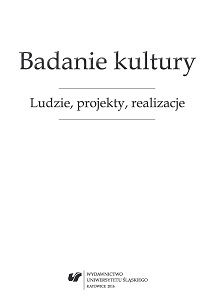
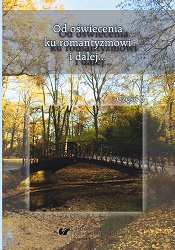
The author of the article attempts to prove that Otherness in Maria by Antoni Malczewski is not limited merely to the protagonists of the poem but also involves the nature that was created by the writer (the flora and the fauna) as well as the beliefs and customs. This aspect has to do also with the entire group of artists – “the Ukrainian school of Polish Romanticism” – within which Malczewski is classified. At the same time, the article represents a contribution to the discussion about post‑colonialism and the Polish contexts of this phenomenon that goes on in the humanities.
More...
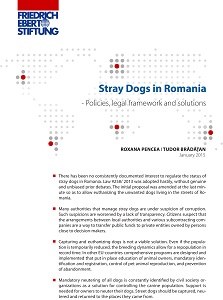
Keywords: stray-dogs;
Some of the animal attacks most publicized in the Romanian media are those by dogs without an owner. The entire issue is covered extensively by the domes¬tic media, with over 12 thousand articles containing the words “dogs without an owner” and almost 25 thousand articles containing the words “street dog.” The situation of street dogs has generated heated debates between animal lovers and those who will see the streets clear of the quadrupeds at any price. The debates are most often restricted to the law¬fulness and morality of the act of ending the life of unclaimed or unadopted dogs, a method which is preferred by authorities and receives generous bud¬gets but has proven ineffective in the medium and long run. While solutions have been sought all these years, the situation has remained almost unchanged – large numbers of dogs in the streets and ineffective authorities.
More...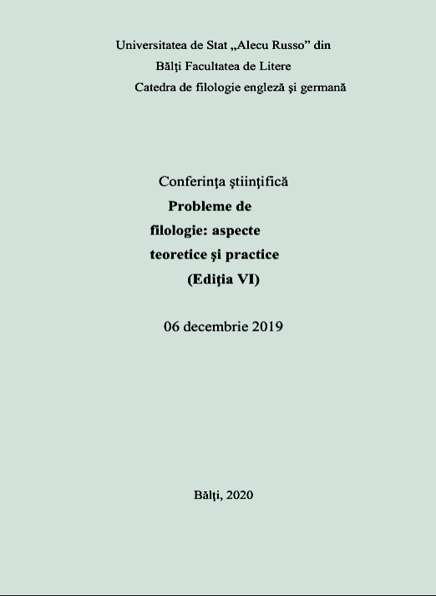
Keywords: proverb; mental; gastronomical lexicon; moral values; national particularities
The gastronomical lexicon is a definitive element in describing the wayof thinking of an ethnicity. Exactly like in any other case, the gastronomicalconcept of the Romanian people is strongly related to their moral element andnational specificity. The proverbs which belong to the gastronomical semantic fieldare numerous and of a big variety, enriching the treasury of the RomanianLanguage.
More...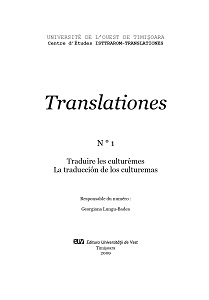
Keywords: Radu Anton Roman;Romanian gastronomy;Romanian traditions;cultural transfer;Romanian-French translations;Romanian-English translations;
The article proposes a comparative view over the treatment applied to Romanian cuisine terms in two translations of a book by Radu Anton Roman, journalist and writer fond of gastronomy. Marily le Nïr and Alistair Ian Blyth used sometimes similar, sometimes different means to render the names of dishes, ingredients, tools, measure units or Romanian traditions. Their work is successful,but the connotations of some words prove that absolute equivalence of terms remains illusory.
More...
Keywords: translation studies; Professeur Tudor Ionescu;
Nous présentons ici en traduction le deuxième chapitre du livre "Ştiinţa şi/sau arta traducerii" (La science ou/et l’art de la traduction, Cluj-Napoca:Limes, 2000:25-34) du regretté Professeur Tudor Ionescu. Spécialiste de Proust, traducteur toujours prêt à répondre aux plus grands défis sans user de « l’excuse » de la note de bas de page (il a traduit, entre autres, Apollinaire, San Antonio et Yves Bonnefoy), traductologue et professeur de traductologie et de littérature française à l’Université Babeş-Bolyai, auteur particulièrement savoureux, Tudor Ionescu jouait avec bonheur du verbe, avait une intelligence de la langue que n’égalait que sa richesse intellectuelle et humaine. Qu’il soit remercié de tout ce qu’il nous a appris en partageant avec nous ses connaissances, ses idées, son expérience, ses interrogations et son enthousiasme (NdT).
More...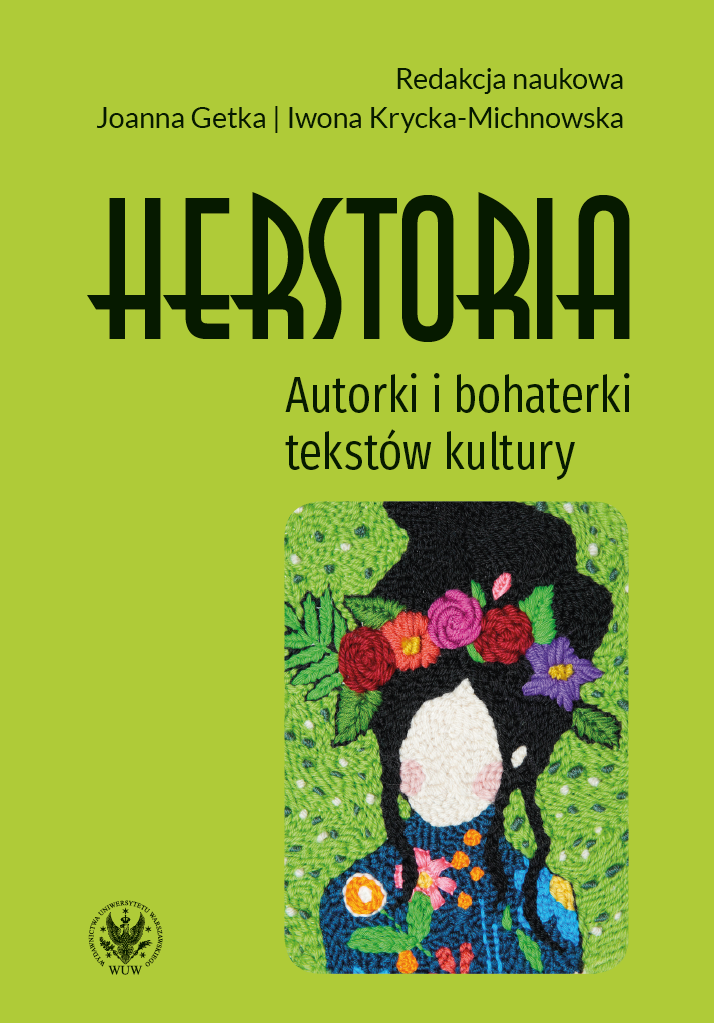
Keywords: Radziwiłł; Grand Duchy of Lithuania; 18th century; travel; educational instructions
In the 16th–18th centuries, magnates gave instructions to their children when sending them on a long journey. Advice was usually given orally, but a certain number of written instructions has survived. Among their authors was Anna Sangushka Radziwiłł (Anna Sanguszko Radziwiłłowa), who wrote instructions for her son Geranim Florian Radziwiłł (Hieronim Florian Radziwiłł) and his guardians on the occasion of his 1730–1735 journey outside the Grand Duchy of Lithuania.
More...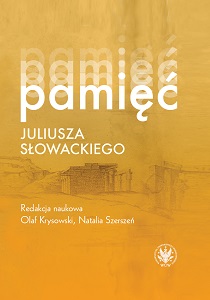
Keywords: Juliusz Słowacki; The Moon; Vilnius; Aladdin; memory
This article is devoted to the city of Vilnius represented in the early poem "Księżyc" (“The Moon”) by Juliusz Słowacki. The image of the city is evidently inspired by one of the first books he read, "The Arabian Nights", particularly by the story of Aladdin and his enchanted lamp. In the 18th and 19th centuries "The Arabian Nights" were one of the most important books in Europe, especially their French translation by Antoine Galland, a French orientalist. Słowacki, having drawn on the story of Aladdin, represented Vilnius as fairy-tale-like place, full of wonders and oriental delights. The memory of his home town was connected to the city illumination in 1822. The poet as a teenage boy perceived the city lights and the thousands of lanterns as an extraordinary and fairy-tale-like event. Słowacki’s memory of the illuminated city intertwined with the memory of the book he had read in his childhood. In this lyrical description of the city an important feature of Słowacki’s memory already became noticeable: for the poet a veristic view was not as important as the view seen in his imagination inspired by the Arabian tales.
More...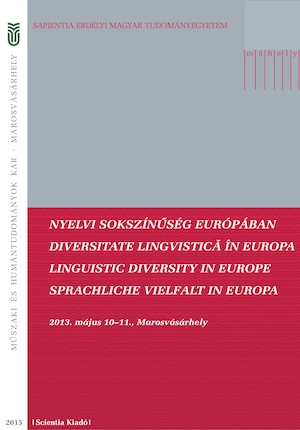
Keywords: journalistic style; phatic function; appellative; conative; actants;
Not all language functions established by the founders of traditional linguistics (Buhler, R. Jakobson) have the same preponderance in the journalistic style – it has been proved by Dumistrăcel Stelian, Dumitru Irimia and Rodica Zafiu. This is the assertion that our study is based on. If the function of transmitting information (denoting) is ubiquitous in the public and private speech, phatic function imposes itself by a variety of expressions: the phatic appellative function, phatic conative function etc. Except for the cognitive function used in legal, administrative and religious texts, all other functions are strongly manifested in the language of journalism and will be the concern of our work. The actants are periodically situated on the same level of communication, the exchange of words remaining a complex problem.
More...
Keywords: botanical nomenclature;
Our interdisciplinary research focuses on the issue of naming plants and botanical nomenclature. The names of plants can be identified in numerous and various sources, and they have been in use since ancient times. We aim to present the most important steps in the evolution of botanical nomenclature, and some aspects of spelling and translation regarding a corpus containing plant names in three languages: Hungarian, Romanian and English.
More...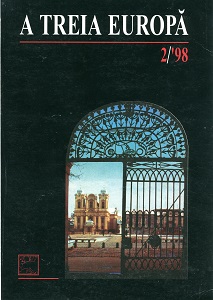
Keywords: reviews; Europe; Central Europe; geopolitics; Romania; culture; borders; literature; minorities;
Reviews of: 1. Rudiger Wischenbart, Frica lui Canetti, București, Ed. Univers, 1997, în românește de Ana Stanca Tăbărași. 2. Livius Ciocârlie, Cap și pajură, București, Editura Albatros, 1997. 3. Proza feminină austriacă, Iași, Institutul European, 1998. 4. Esterhăzy Peter, Verbele auxiliare ale inimii. Introducere în beletristică, lași, Institutul European, 1997, traducere și note de Anamaria Pop, postfață de Mircea Nedelciu. 5. Bernard Malamud, Butoiașul vrăjit, în românește de Anton Celaru, București, Editura Hasefer, 1998. 6. Witold Gombrowicz, Jurnal, selecție, traducere și note de Olga Zaicik, prefață de Kazimierz Jurczak, București, Editura Univers, 1998. 7. Ladislav Mnacko, Gustul puterii, traducere, prefață și tabel cronologic de Helliana Ianculescu, București, Editura Minerva, 1997. 8. Slavco Almăjan, Metagalaxia minoritară, Novi Sad, Editura Libertatea, Iugoslavia, 1996; Iași, Editura I.N.S.C.R., 1998. 9. Fulvio Tomizza, Materada, traducere de Doina Condrea Derer, Timișoara, Editura Augusta, 1998. 10. Peter Handke, Scurtă scrisoare pentru o lungă despărțire, traducere și postafață de Mariana Lăzărescu, București, Editura Univers, 1998. 11. Methodologische und literarhistorische Studieri zur deutschen Literatur Ostmittel - und Sildosteuropas. Internationales Symposion, Innsbruck 18-19.10.1991 Sudostdeutsches Kulturwerk, Miinchen, 1994. 12. Guy Hermet, Istoria națiunilor și naționalismului în Europa, traducere de Silvia Dram, prefață de Al. Zub, Iași, Institutul European, 1997. 13. Raoul Girardet, Mituri și mitologii politice, Iași, Editura Institutului European, 1997. 14. Allan Janik, Stephen Toulmin, Viena lui Wittgenstein, București, Editura Humanitas, 1998, traducere și note de Mircea Flonta. 15. Aurel C. Popovici, Naționalism sau Democrație, o critică a civilizațiunii moderne, studiu introductiv, îngrijire de ediție, note de Constantin Schifirneț, București, Editura Albatros, 1997. 16. Aurel C. Popovici, Stat și Națiune, Statele-Unite ale Austriei Mari, Studii politice în vederea rezolvării problemei naționale și a crizelor constituționale din Austro-Ungaria, traducere din limba germană de Petre Pandrea, studiu introductiv, note și îngrijire de ediție Constantin Schifirneț, București, Editura Albatros, 1997. 17. Doru Radosav, Sentimentul religios la români, Cluj-Napoca, Editura Dacia, 1997.
More...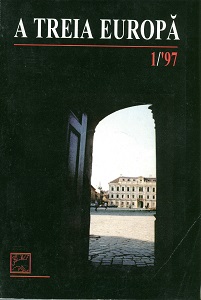
Keywords: Croatian literature; Slavenka Drakulić; communism;
Vesna ridică perechea de ciorapi înspre lumină, băgă o mână înăuntru pentru inspecție, întinse degetele, și apoi începu să-și tragă mâna încet, căutând firele rupte. O parte era întreagă. în cealaltă fugise un fir. „Perechea asta nu e bună”, spuse, punând-o deoparte și luând alta din grămada din fața ei. Scena se petrecea în bucătărie, într-o dimineață însorită de duminică. Venisem la ea să împrumut un aspirator, căci al meu tocmai se hotărâse să-și ia adio de la viața lungă și rodnică pe care o dusese până în chiar dimineața cu pricina. Mama ei, așezată vizavi de noi, întinse mâna și luă perechea de ciorapi. „Dar Vesna, e păcat de ei, ciorapii ăștia poți să-i mai porți prin casă. Am să-i duc la remaiat”. Vesna se-ncruntă la ea, apoi izbucni în râs. „Ba n-o să-i duci,” spuse și apoi se întoarse spre mine. „De fiecare dată când încerc să arunc o pereche ea încearcă s-o «recupereze», s-o repare, s-o folosească la umplut perne, să strecoare prin ea sucuri de fructe sau să lege cu ea sacul de gunoi - e în stare să găsească zeci de utilizări diferite pentru șosete sau ciorapi vechi. De parc-ar trăi tot în anii cinzeci”. în tot acest timp, mama ei își sorbise calmă cafeaua, dând din cap de parcă noi n-aveam cum s-o-nțelegem, oricât ne-am fi străduit. „Nu trăiesc deloc în anii cinzeci, dar nu știi niciodată ce se mai poate întâmpla. Adu-ți aminte că acum doi ani nu se găseau de loc ciorapi în magazin. Tu singură mă rugai să ți-i remaiez pe cei vechi și «recuperați». îi întindeam pe un bec (bine c-am avut grijă să păstrez becurile arse - am să regret toată viața ciuperca de lemn pe care am aruncat-o) și îi coseam cu un fir de nailon. Și-n plus, doar n-o să-i arunci pentru un singur fir dus...”
More...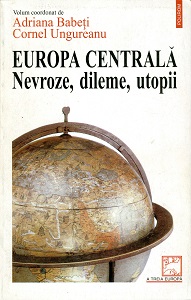
Keywords: Central Europe; attitudes; identity; politics;
Pornesc de la premisa că Europa Centrală există, în pofida numărului mare al celor care neagă acest lucru - începînd de la jurnaliștii politici care continuă să o numească „Europa de Est” și terminînd cu prietenul meu Joseph Brodski care preferă să îi rezerve numele de „Asia Occidentală”. Acum, în aceste ultime decenii ale secolului douăzeci, Europa Centrală pare să nu mai dăinuie decît în mintea unora dintre intelectualii săi. Și totuși, trecutul acestei zone - un trecut comun, în ciuda numărului mare de limbi și naționalități întîlnite pe teritoriul său - este întotdeauna prezent și cît se poate de palpabil ; este prezent în arhitectura orașelor sale, în tradițiile universităților de aici și în operele poeților. Prezentul nu este lipsit nici el de semne care indică unitatea care se află în spatele diversității. De cîte ori mă aplec asupra operelor literare scrise astăzi în cehă sau în poloneză, maghiară sau estoniană, lituaniană sau sîrbo-croată, îmi este dat să percep un anumit ton și o anumită sensibilitate care nu pot fi regăsite altundeva, în nici o scriere din Europa Occidentală, America sau Rusia.
More...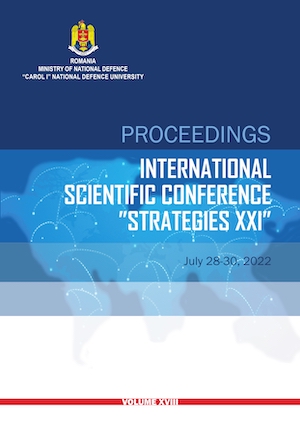
Keywords: cyberspace; information space; security; strategy; doctrine; Russian Federation; Ukraine;
In recent years there have been important changes in the approach to conflict, leading to a paradigm shift in the future warfare. Cyberspace has become a serious challenge for all states. Being easy to connect and cheap to operate, it has become a preferred battle space for many actors. It is used to disrupt networks, destroy and steal data, block or slow down critical infrastructure or spread false information. The development and innovation of military technologies and the professionalization of soldiers are not enough to fight in information warfare. Revising and improving old doctrines, and strategies is a clear form of supporting new techniques, tactics, and procedures of the Russian fight in cyberspace. The improvement of conventional tactics of warfare in conjunction with the introduction of new unconventional tactics of warfare has predictably led to the strengthening of internal, regional, and global security and resilience. The new vision of Russian warfare is that kinetic actions are supported by non-kinetic ones. As a result, Russia's cyber activity has recently intensified amid the invasion of Ukraine, putting the whole world on alert. Malicious activity in cyberspace is creating large-scale disruption in all areas. In this context, the activation of Article 5 for attacking a Member State in cyberspace is becoming increasingly discussed.
More...